UK ISP Sky Broadband Finally Re-Adopts Ofcom’s Latest Speed Code

After sitting on the fence for a while, Sky Broadband has finally re-adopted Ofcom’s voluntary Code of Practice for Broadband ISP Speeds, which among other things will require them to give customers more information about their estimated line speed and makes it easier to exit a contract penalty free (if faults cannot be fixed).
Just to be clear. Sky did support Ofcom’s code, until the pandemic hit, but they appear to have felt that some of the changes caused by the COVID-19 crisis may have made it difficult to meet the code’s requirements (e.g. Openreach’s engineers being prevented from entering homes to fix speed issues). In the end they, unlike other ISPs, withdrew from the code and have stayed out for a surprisingly long time.
However, Ofcom made a few smaller tweaks to the code last year to better support bundles (here), which among other things revealed that Sky Broadband planned to “re-join” later in 2022. Such a development is important because the ISP is home to around 6 million broadband customers (exact figures are unclear, as they no longer publish such details).
Advertisement
Sadly, the regulator’s code compliance report didn’t add much detail, but while updating some of our ISP listings last week we spotted that Sky Broadband (inc. NOW TV / Broadband) had finally been added back to Ofcom’s list of supporting providers. The regulator informed us that this officially happened – with no public fanfare – at the very end of November 2022.
A Sky spokesperson told ISPreview.co.uk:
“Sky re-joined Ofcom’s voluntary Speed Code of Practice at the end of 2022. While we were conducting technical work following changes to the code, we continued to comply with the key rules including giving speed estimates to customers and offering the right to exit if their speeds were below what was promised.”
As a result, residential customers of Sky and NOW can finally enjoy the same regulated code protections as those of BT, EE, Plusnet, TalkTalk, Utility Warehouse, Virgin Media and Zen Internet (they joined in 2021). Now, since we’re on the subject, it’s worth noting that one big ISP – Vodafone (they have over 1 million broadband customers) – is still missing from Ofcom’s list of supporting ISPs.
We should add that some ISPs have struggled with adapting to the major code update in 2019 (summary of the new code), which required ISPs to make a lot of changes. The code also introduced some technical challenges in regard to speed testing, as well as stricter customer protections. As such, we don’t expect many smaller ISPs to join, due to the costly challenges of implementation.
Mark is a professional technology writer, IT consultant and computer engineer from Dorset (England), he also founded ISPreview in 1999 and enjoys analysing the latest telecoms and broadband developments. Find me on X (Twitter), Mastodon, Facebook, BlueSky, Threads.net and Linkedin.
« KCOM Expands FTTP Broadband Build to Village of Gunness






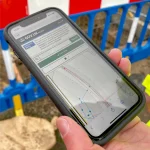

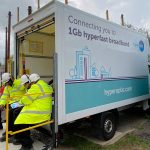

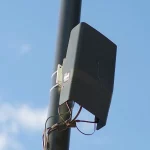
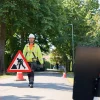

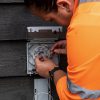

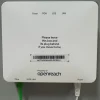






































I was told by Sky that I could expect up to 60mbs when I took out the contract. Things were working as expected until 2022 when I did a line speed check and fount I was getting 34mbs!
What Sky doesn’t tell you is that they will lower your speed once you are mid contract.
Once my contract ends I will be going else where
This is not the case. Your speeds will change when you recontact not during, as it would mean you are not getting what you agreed to.
Prob your Wi-Fi was on G which taps out lower than N or later especially the protocols that use higher frequencies.
G goes further but with less speed.
To do a proper speed test you need to be plugged into the router via an Ethernet cable.
further from the truth. this does not happen intentionally, nor does it happen isp side. there are lots of factors for a perceived reduction in speed. its a shame sky are still stuck on openreach (by choice) even while talktalk has adopted the idea with success, but it must tread cautiously in such economic downturn
You answered your own question “up to 60Mbps” you would have given your EALS (Estimated Access Line Speed) which would have been between one figure and another and YOUR GMDS (Guaranteed Minimum Download Speed) which is the minimum speed the line can handle and if it goes below that then you have a right to exit. This would have been available to you or read to you at point of sale and its likely you’ve not paid attention or ignored it. A provider can’t “change your speed” unless you change packages to a slower or faster Broadband
Likely more people subscribed to a VDSL service nearby to you which increased the noise on your line.
I have the opposite occurring. Neighbors in the block of flats have moved out and my connection speed has increased. Won’t be long until someone new moves in and my line speed drops a little again.
The Social Landlord is useless else I’d have FTTP / FTTB 😕
This happened to me – my line speed dropped via Sky to below the downstream threshold but trying to report it via Sky just to be told there was nothing wrong via their checker.
So I left after 11 years.
This also happened to me, but I did get it resolved. What I was given as an explanation was that an issue on the line had impacted speed, but had done so a little bit further back than I had personally detected, and that timeline then impacted the line test results – which initially indicated no issues. Whether that’s correct or not, within 15 days my speed had returned and Sky refunded 2 months of BB fees due to dropping below MALS. Initially, they were going to refund a month, but after me pointing out that I had to have been receiving slower speeds beyond the current month for their explanation of the reason for the passed line test, they accepted that I was a smart cookie who listened, and gave the 2 month refund.
The same up to X issues of ADSL are present in VDSL.
Over time as end of life phone lines continue to degrade, the broadband fades too.
When my Sky package was due for renewal the minimum speed guarantee was 2Mb below Openreaches handback threshold (dsl checker)… that was a drop of 15Mbps from the existing contract.
Sky refused to acknowledge the contradiction saying that “it’s Ofcoms regulations”.
So I waited and went with BT when they deployed FTTP.
I’ve been with Sky for 15 years and never had any drop in speed with any of services I have had off them – ADSL2 – FTTC and now FTTP